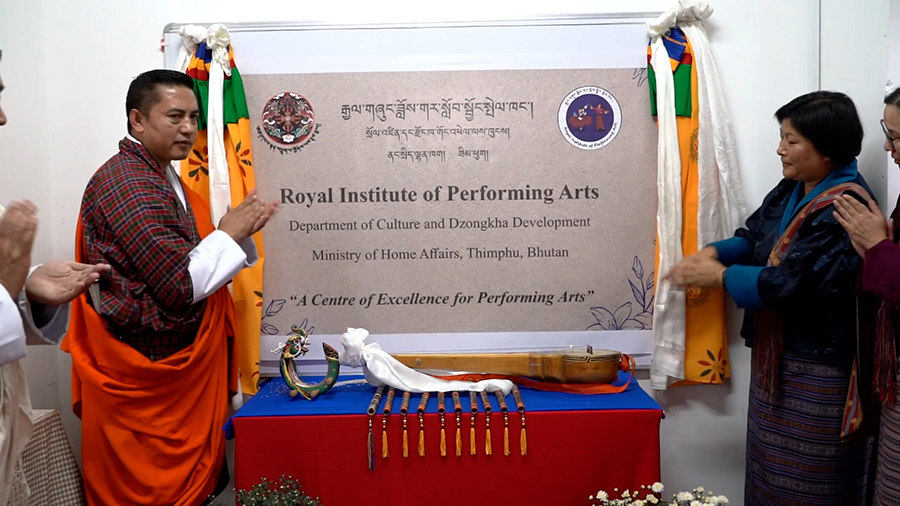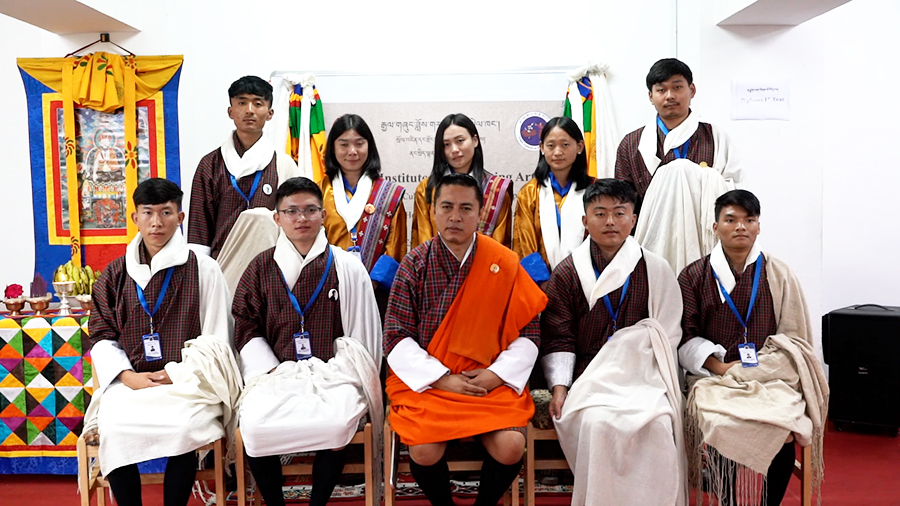 For many artists retiring from the former Royal Academy of Performing Arts or RAPA, life after 40 brings an uncertain future. Under current regulations, artists are required to leave the institute upon reaching 40. With most of them being class 12 graduates, finding a job after retirement becomes difficult. To address this challenge, the Royal Institute of Performing Arts was inaugurated today in Thimphu, enrolling its first batch of 10 students in a Diploma in Performing Arts programme.
For many artists retiring from the former Royal Academy of Performing Arts or RAPA, life after 40 brings an uncertain future. Under current regulations, artists are required to leave the institute upon reaching 40. With most of them being class 12 graduates, finding a job after retirement becomes difficult. To address this challenge, the Royal Institute of Performing Arts was inaugurated today in Thimphu, enrolling its first batch of 10 students in a Diploma in Performing Arts programme.
Bhutan’s performing arts, from sacred mask dances to the gentle strum of the dramnyen and folk songs, are at risk of fading away.
A shortage of trained performers, the mandatory exit of senior artists at 40, and the growing demand for skilled cultural representation at home and abroad are threatening this living heritage.
Without a formal institution, the number of skilled artists has been shrinking; these challenges have only deepened over time.
The new programme will include courses in mask dances, traditional musical instruments such as dramnyen and yangchen, Bhutanese theatre, cultural studies, and live performance opportunities at national events.
 For now, the institute is enrolling 10 students aged 16 to 23. After completing the diploma course, they will serve as artists with RAPA, now renamed as the Traditional Performing Arts and Music Division, which operates largely on a programme-driven basis, until they turn 40.
For now, the institute is enrolling 10 students aged 16 to 23. After completing the diploma course, they will serve as artists with RAPA, now renamed as the Traditional Performing Arts and Music Division, which operates largely on a programme-driven basis, until they turn 40.
The diploma programme, however, aims to prepare them for opportunities that go beyond this path.
“The artists we have today are highly skilled professionals, but when it’s time for them to explore other opportunities, the Royal Civil Service Commission requires proper certification. Despite their expertise, the lack of such documentation makes it difficult for them to find jobs. To avoid this in future, we start this,” said Phub Wangdi, Officiating Principal, RIPA.
“I feel blessed to be part of RIPA. As youth, it’s our responsibility to safeguard our culture and traditions. Of the many opportunities this diploma will bring, the one I’m most excited about is the chance to work as a music teacher in schools,” said Pelzin Dema, Student, RIPA.
“After I graduated from class 12 two years ago, I was left doing nothing. Today, this institution is a big opportunity for me because ever since I was a child, I was always interested in singing and playing an instrument,” said Tenzin Dorji, Student, RIPA.
The institute aims to produce at least 50 professionally trained artists by 2027, strengthening Bhutan’s cultural identity, engaging youth in heritage preservation, and enhancing the country’s presence on international cultural stages.
Samten Dolkar
Edited by Kipchu









